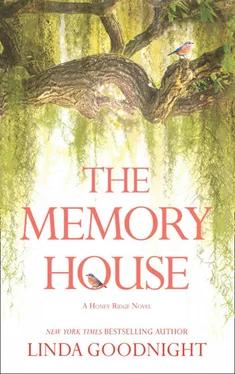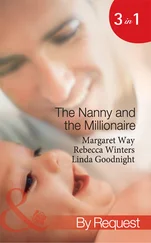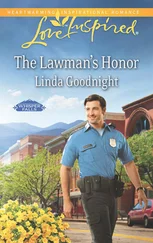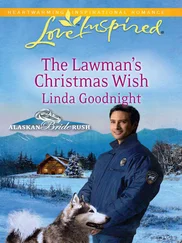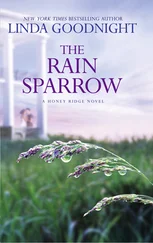“My car is back down the road about a half mile.” He pointed south where the clunker had died on him last night around midnight. Sleeping in the car hadn’t bothered him. He liked being in the open where he could see the stars and feel the fresh air.
“You from around here?” Bob angled his face toward the passenger seat. Morning sun reflected off his black-framed glasses.
“No.”
“Me, either. The wife and I are looking to move this direction, but we hail from Memphis.”
Eli’s stomach dropped into his still-stiff boots. He’d spent seven miserable years in Memphis. Even after six months of freedom, the memory was too sharp for comfort.
Struggling for polite conversation to turn the topic from his least favorite place, Eli blurted the first thing that came to him. “Seems like a nice inn.”
“Peach Orchard? The best. The wife and I drive down here to Julia’s whenever we get a chance. Unless you’re a Civil War buff, nothing much to do but sit around on the porch or walk in the gardens and orchard, maybe fish a little, but that’s why we come. Peace and quiet. Beautiful scenery. And great coffee.” He laughed and drained the remainder of his cup.
Eli continued to relish the best coffee he’d tasted in more than seven years. His mother had made coffee like this, in one of those fancy presses. He wondered if she ever thought about him. He tried not to think about her or of his father or the life he could have had if he’d been a better son. Remembering hurt too much, carried too much shame and remorse.
He sipped at the cup, glad for something in his empty stomach and grateful to the woman at the inn.
Julia. Pretty name for a pretty woman with her honey-blond hair smoothed back into a tail at the nape of her neck and sad blue eyes. He wondered why she’d been crying. But he shouldn’t be thinking about her. Shouldn’t be wondering what it would be like to sit down in that sparkling clean kitchen and enjoy breakfast with a woman like her. He didn’t let himself think about women of any kind these days, certainly not a decent one.
“Sweet lady,” Bob was saying as they turned south and approached Eli’s stalled vehicle. “At the end of every visit, she gives us a jar of peach preserves she makes from the orchard. Mighty tasty.”
Eli salivated at the thought of toast and jelly, a reminder that he’d not eaten since yesterday morning long before he’d finished the drywall job, collected his meager pay and left Nashville. To fill his empty belly, he took another mouthful of Julia’s coffee. Bob was right. Great stuff. Smooth and bold, the way Eli used to be.
He stared out the passenger-side window at the rolling landscape, green and flowery with spring. In the near distance he spotted buildings, a surprise. He hadn’t known he was that close to town but now that he thought about it, why would an inn be stuck out in the middle of nowhere?
“Is that your car right up there?” Bob nudged his chin toward a mistreated old Dodge parked at an angle on the side of the road.
He could imagine how a successful man like Bob Oliver must view a rattletrap with rusted fenders and a missing bumper. To the man’s credit, he didn’t react. A kind man. And good. The type of man Eli hadn’t encountered in a long time.
They exited the car and walked to the Accord’s trunk, where Bob removed a set of jumper cables. “Might as well grab the toolbox, too, in case we need it.”
Eli reached for the red metal container and started toward the front of his Dodge.
“How was she acting when she quit?”
“Just quit. The engine’s been sputtering for a hundred miles. I thought the fuel filter might be plugged up.”
“You checked that, I guess.”
“First thing this morning. Blew it out as good as I could. Still nothing.”
“Did she overheat?”
“No, sir. Just quit. The battery is old. It’s probably bad.”
“Let’s have a look.”
Eli stashed his remaining coffee on the floorboard of the Dodge. Then he lifted the hood and braced it open with a stick, amused and interested that a physics teacher had offered to do mechanic work. “Where did you learn about cars?”
“Hobby. When I was a kid, we didn’t have diddly. The only way I could own a vehicle was to rebuild one I’d bought myself. So I did.”
Eli huffed softly. “Sounds familiar.” Though he’d once had the finest vehicles, a beautiful home, a good family. And he’d thrown them all away on stupid choices.
He reached into the toolbox for an end wrench and tapped at the battery terminals. “Corroded,” he said with disgust. Like his life. He stuck the wrench in his shirt pocket while he wrestled the cable heads loose.
Bob leaned in for a look. “I think you’ve found your problem. They need a good cleaning, but a wipe down and a jump should get you back on the road.”
Eli scrubbed away at the terminals, using a T-shirt from his duffel bag. “Best I can do out here.”
Bob hooked up the jumper cables while Eli slipped into the driver’s seat and turned the key. After a few feeble grinds, the engine caught and started. Black smoke curled out the tailpipe as Bob slammed the hood and came around to the driver-side window.
“You have that checked first chance you get.”
“Sure.” When money grows on trees. “What do I owe you?”
“Not a thin dime. Pay it forward. That’s all I ask.”
Eli gave a solemn nod. “Thank you, sir.”
“If you get back this direction, stop in and say hello. If you see this Accord in the lot, we’re here.”
“Will do.” Not likely.
Then, with the morning breeze blowing in his face, Eli aimed the Dodge toward town, Opal Kimble and a piece of the past he’d never intended to resurrect.
The town of Honey Ridge was waking up as the old Dodge wheezed and rattled down the double row of buildings that composed the main street and led to a central square. The concrete was darkened from last night’s rain.
A woman washing the display window of Hallie’s Gifts and Cards paused, paper towel in hand to watch him pass. Her stare gave Eli a crawly feeling. He didn’t want to attract attention, here or anywhere.
A man outside the post office hoisted the flag though not a breath of air stirred. Many of the buildings were from another time but neat and well kept, one of them marked with the date 1884 and painted in colorful murals of the past.
As he passed a doughnut shop, the scent floated through his open window. His belly growled.
Eli fished in his jacket pocket for the scrap of paper and the directions Opal had given. Two blocks east of the stoplight he turned down Rosemary Lane, crawling along until he spotted a blue-frame house with peeling paint, an overgrown lawn and two green metal chairs on the front porch. Opal’s house.
The Dodge rattled to a stop at the end of a cracked driveway where a child’s plastic motorcycle lay on its side next to the garage. Eli’s empty belly cramped. His palms grew wet against the steering wheel.
What was he doing here? Every cell in his body urged him to turn tail and run, but for once in his life he didn’t. Couldn’t. He’d done very few responsible things in his thirty-six years, but this was different. He still couldn’t believe the horrible news. Sweet, giggly Mindy who’d fancied herself in love with him was dead—and she’d left behind a child.
With nerves gnawing a hole in his gut, he got out of the car, crossed the yard and stepped quietly onto the porch. It was early. If the car hadn’t broken down he’d have arrived last night. He didn’t see a light. Was Opal still asleep? Maybe he should come back later.
Coward , a voice inside his head whispered.
He released a gust of breath, wiped his sweaty hands down his jeans and reached for the knocker. His shaky hand wouldn’t quite take hold of the tarnished brass. He hovered there, as if the ordinary knocker had the power to change his life. Maybe he should forget this and head back to Nashville, keep trying to find permanent work. The boy never needed to know him. The boy. His son.
Читать дальше
